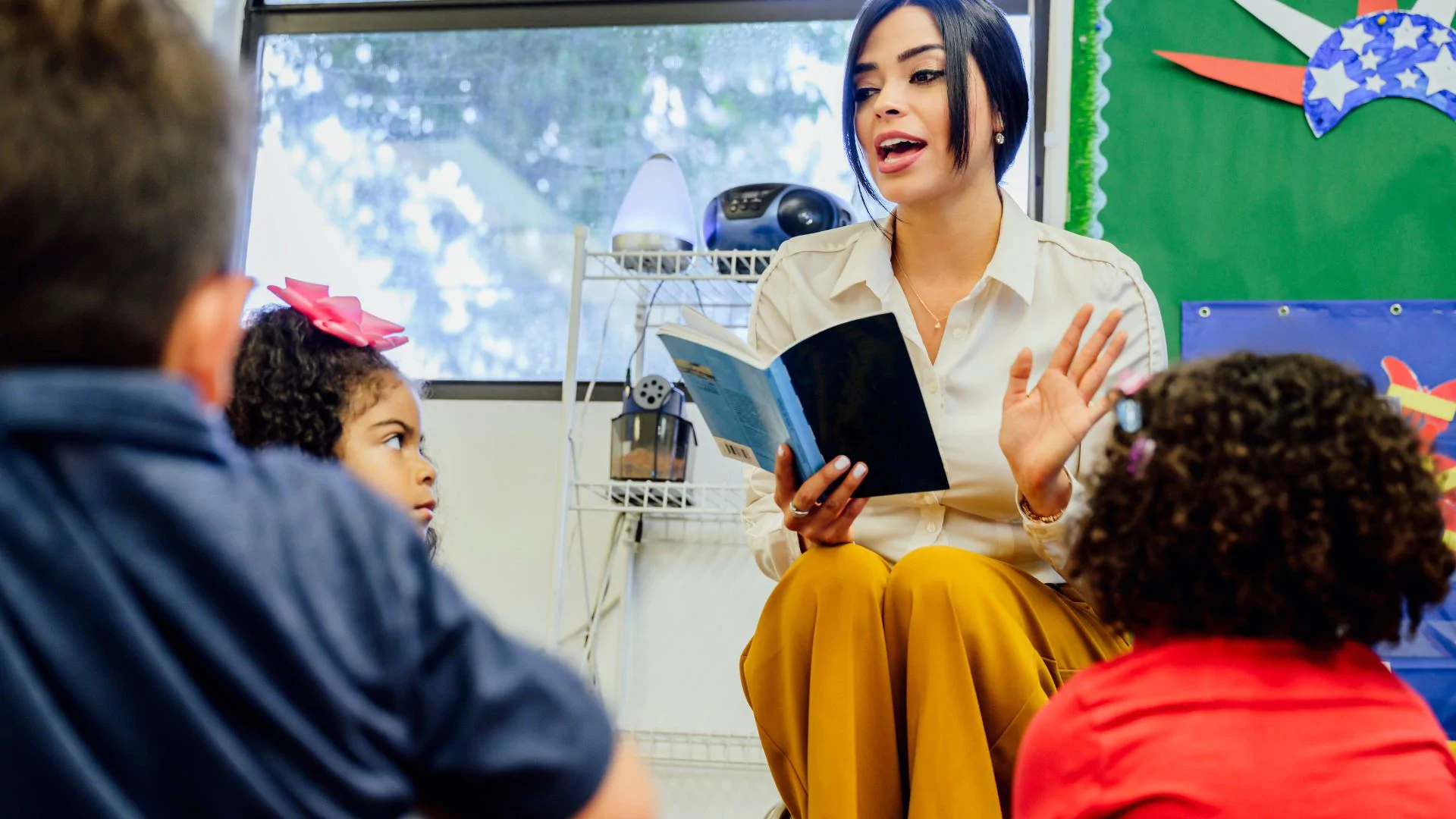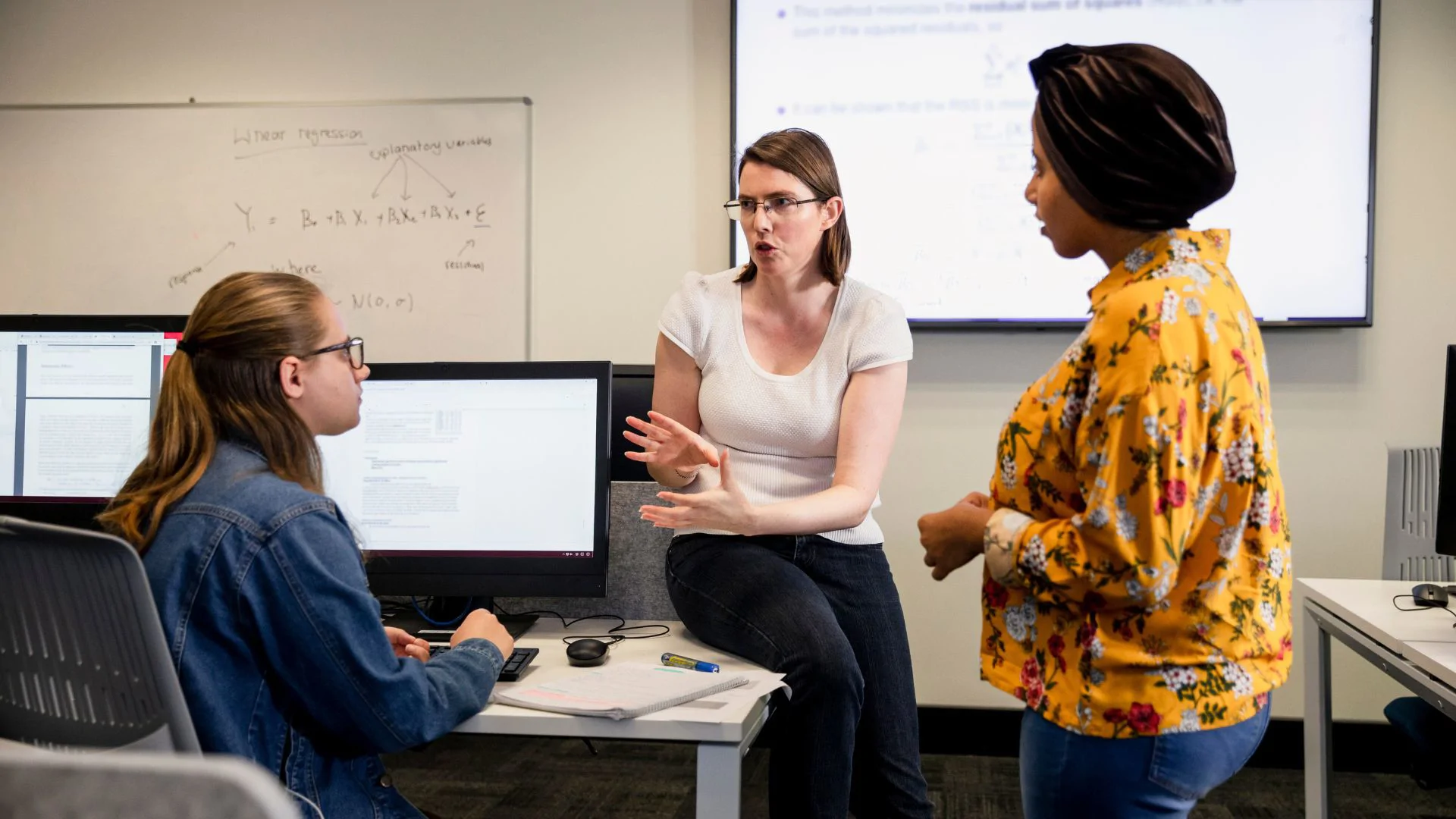Inside the Classroom: An Early Career Teacher's Perspective
21 Mar, 20241-2 minutes
In this blog, you will learn:
- What it’s like to be an Early Career Teacher in the classroom.
- What to expect in a career in the education and SEND sector.
- How to find and apply for the best Early Career Teacher jobs.
An Early Career Teacher (also known as an ECT) is a relatively new term in the field of education. It refers to a brand new teacher who has completed their teacher training and is part of a two year induction programme.
Prior to September 2021, an ECT was also known as a Newly Qualified Teacher (NQT) with the induction period lasting one year.
An Early Career Teacher works alongside The Early Career Framework (ECF) which sets out what they should learn to prepare for their teaching career ahead. Early Career Teachers bring fresh perspectives and new ways of working into the teaching profession.
We recently caught up with an Early Career Teacher to discover fresh insights from someone new to the role and what an Early Careers Teacher does on a typical day.
Since completing her Initial Teacher Training in 2022, she has worked as a SEND Teaching Assistant, worked 121 with vulnerable children with SEND and encountered a variety of challenges and lessons.
Working in the SEN unit in a mainstream school, this Early Career Teacher has learnt to adapt her skills, training and teaching strategies to ensure individualised learning for the pupils in her classroom.
Tell us about your career journey so far
I did my initial teacher training in primary education with Schools Direct. I fully qualified in July 2022. In September 2022, I started working as a SEND Teaching Assistant in a Reception classroom as a 1:1 with two autistic children, both part-time.
I then moved into the small SEN unit that was in the school with one of my 1:1 children. From this, I was offered an Unqualified Teacher Role in the SEN unit, for 3 to 5 non-speaking autistic children. In September 2023, I started as an Early Career Teacher in the SEN unit.
What does your role consist of?
As an Early Career Teacher, I have all the responsibilities of a class Teacher. I plan individualised & group sessions and I make all resources to make sure they are individually suited for the children.
I assess and evidence all childrens’ learning and progression on Tapestry and use this to help plan the most effective sessions for the children. I work closely with three SEND Teaching Assistants, one who is with me full time and the others split their time between the SEN unit and other year groups in the school.
I also work with three SEND Teaching Assistants who work with children in another year group who I plan for but who do not come into our classroom due to limited space. As an Early Career Teacher, I also work closely with my mentor, who is the SENCO.
What does a typical day look like for you?
7.00-7.15am – When I wake up, I check my emails first thing. I then get ready for the day and have my breakfast.
7.50am – I commute to work.
8.10am – Arrive at school and go into the classroom and set up continuous provision outside and inside.
8.30am – Sort out resources for the morning, meet with SEND Teaching Assistants to discuss planning for the day and any evidence needed from 1:1 and group learning. On Monday, we also have a staff briefing.
8.45am – Pupils begin to arrive and we have the children’s morning routine e.g. coat/bag on pegs, self-register, ‘I am feeling…chart’, practising name on card.
9am – Session 1, Speech and Language Therapists/1:1 and group
9.25am – Session 2, Monday and Wednesday is English, Tuesday and Thursday is Maths and Friday is Phonics or PE.
9.50am – Snack time.
10am – Supervise morning play in an alternative playground which consists of 5 children.
10.30am – Session 3, 1:1 Intensive Interaction/1:1 skills based sessions in class with a SEND Teaching Assistant.
11am – I warm the milk for one of my pupils with autism to ensure he gets his nutrients. I do this in the staff room.
11.15am – Session 4, Monday/Wednesday/Friday is Attention Autism and Tuesday and Thursday is Reading.
11.30am – Toileting, get ready for dinner (puddle suits/wellies on, lunch boxes/water bottles collected)
11.50am – Supervise lunch in the dinner hall.
12pm – Lunch break. I usually catch up on emails, sort out resources for the afternoon, hand out resources for children not in the classroom, check in with SEND Teaching Assistants for any feedback from morning sessions, start editing and uploading on Tapestry.
1pm – Ensure one of pupils has their milk again for dinner.
1.30pm – Session 5 is a foundation subject such as sensory opportunities and choosing time.
2pm – Afternoon snack for children.
2.15pm – Session 6 is again foundation subject/sensory opportunities/choosing time.
3pm – Begin the home time routine and write in home/school diaries.
3.15pm – Children leave and I speak with parents if and when possible.
3.20pm – After the children have gone, I tidy the classroom and outdoor provision, put everything away and put the shutters down.
3.30pm – I start preparing and making resources for the new school day. I check in with SEND Teaching Assistants, finish and authorise Tapestry uploads and complete my Early Career Teaching work.
4.10pm – I go home and work from home for an hour or two, answering emails, doing some planning, and updating paperwork.
5.30pm – Take the dog for a walk and on Tuesday’s I go to the gym.
6-6:30pm – Shower and have my tea.
7pm – On Wednesdays and Fridays, I work as children’s director at my church consisting of board meetings, kids club and Thursday is band practice.
8-10pm – Then I walk the dog, watch TV or read for a bit.
10pm – Get ready for bed.
On Wednesdays we have staff meetings until 5pm and on Thursday afternoons, I have planning, preparation and assessment (PPA) either at work or from home depending on content. On Thursdays, I also have a meeting with my Early Career Teacher mentor until 4.30pm.
How do you keep up-to-date with changes in the SEND industry?
Some changes are discussed in staff meetings but I also do my own research to make sure I am up to date with everything required for my children.
What is your favourite aspect of your role as an Early Career Teacher?
My favourite aspect of the job is playing a vital role in helping children overcome an obstacle they have been facing in order to progress. This can be something as small as opening a door independently or being able to use speech to request an item.
What’s the most valuable lesson that you’ve learned so far?
I have learnt a lot in my short career so far. Starting as an Early Career Teacher in an SEN unit has had its challenges. I would say in terms of the most valuable lesson, it would be learning how to adapt my teaching style and training to fit with the childrens’ needs.
During training, I only had one week in an SEN unit and one afternoon session on SEN as a general department. This meant that I was coming into teaching with little idea on how to teach and plan, or handle behaviours in a SEN classroom. I had to learn on the job alongside my SEND Teaching Assistant.
What challenges have you faced in your career?
I have faced many challenges since beginning my career, especially since starting in the SEN unit. As the SEN unit is attached to a mainstream primary school there are many challenges that we are still dealing with currently.
One of the biggest challenges is lack of space in the school. The classroom itself is very small which means we can only have 4 children at one time. We have had to prioritise children based on their needs as we are unable to extend the room.
There are many challenging behaviours we have to deal with when working with SEN children and sometimes the children display aggressive behaviour. We have had training on crisis prevention but often the behaviours we see are not because the child is in crisis. We work really hard to keep everyone safe, myself included, in the space we work in.
Reform in the SEND sector continues to be a huge topic of discussion. How have things changed or progressed in the SEND sector since the start of your career?
My career has been very limited so far, as I have only been a Teacher for two years. In those two years, I would argue not a lot has changed in terms of the SEND sector, of what I have experienced.
However, in the last few years I have been teaching, it has become more apparent that staff have access to more training within educational settings on how best to support the child. There are also more options of special schools and alternative provision.
What changes would you like to see to better support the needs of children and young people with SEND?
I would like the number of special schools and alternative provision to continue to increase, as not all children who need a place at a specialist school are able to access one. I would also like to see more funding for SEND pupils, particularly those at a mainstream school. It is important that SEND children can access their learning, no matter what school they are at.
For this to happen, mainstream schools also need funding and support in order to put things in place. For crisis prevention, I would like staff training to increase with more, adaptive teaching strategies on how to deal with challenging behaviour.
What advice would you give to anyone considering a career in SEND education?
My advice would be to make sure that you are fully supported in all aspects of SEND education. It is a difficult job and can be very mentally and physically draining. Staff relationships are so important so make sure you are surrounded by a team of people that you can rely on and that can rely on you.
Research the needs of the children and get to know them and their families as much as possible. A strong relationship with families can make difficult conversations much better. It is important that the families can trust you to fight for their child as hard as they would.
I would also remind them that a job working with SEND children is difficult. You are going to have days where nothing seems to be going right and you will doubt whether you have chosen the right path
It is important to remember that achievements with SEND pupils are not always as big and obvious as those in mainstream. Celebrate all the small wins, and don’t blame yourself or your abilities if things aren’t working out. There’s no shame in asking for help.
What’s next for you?
I’m going to finish my Early Career Teacher qualification and start to look at what is next for me in my career. I would like to continue working towards a bigger, better resourced space for my children.
Find your next teaching job
If you’re searching for your next teaching job, why not take a look at the opportunities currently available? Or upload your CV and we will notify you when a relevant opportunity arises.
We work with hundreds of SEND and mainstream schools, predominantly in the North West area, so why not get in touch to see where your career could lead today?
If you loved this interview, why not check out more interviews we recently conducted?
- What It's Really Like To Be A Newly Qualified Teaching Assistant
- Instincts and Advice From a Teaching Assistant
- Interview With a Director For SEND
Recruiting Early Career Teachers?
As experts in mainstream and SEND school recruitment, we can help you with your staffing needs. We currently work with hundreds of schools, and have exclusive access to some of the best Teachers, Teaching Assistants and Early Career Teachers in the North West.
If you’re struggling to fill an Early Career Teacher vacancy, why not get in touch with our Managing Consultant Jamie Heath on 01772 954200 to discover how we can help.
Share your experience
Every individual brings a unique set of experiences, thoughts, and insights to the table. We believe in giving a voice to a community of professionals to inspire positive change and champion reform in the education sector.
If you work in the education sector and would like to share your own personal and professional experiences, we’d love to hear from you. Perhaps you have a different perspective, could offer a fresh angle, or want to challenge assumptions.
Simply reach out to our Head of Content, Nicole Sherwood, to discuss a collaboration which makes your voice count.
Meet Jamie Heath
Who is Spencer Clarke Group?
We are an energetic recruitment agency with a passion for transforming the recruitment experience. From the way we conduct business, to the culture in our office in the North West, we believe in having a positive influence and creating meaningful change.
We operate in two sectors:
In eleven specialisms:
Healthcare, Social Care & Nursing
Corporate Functions & Business Support




